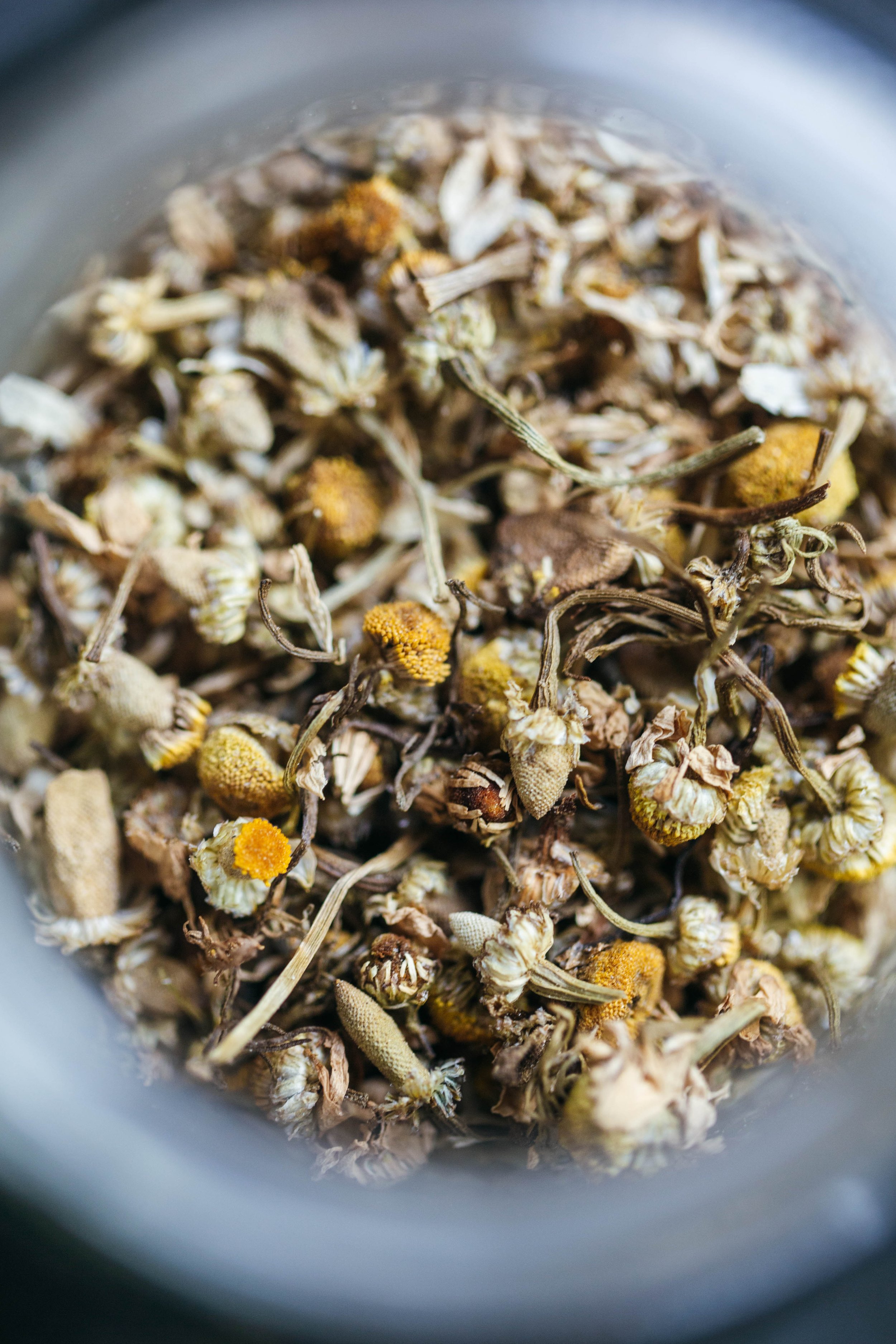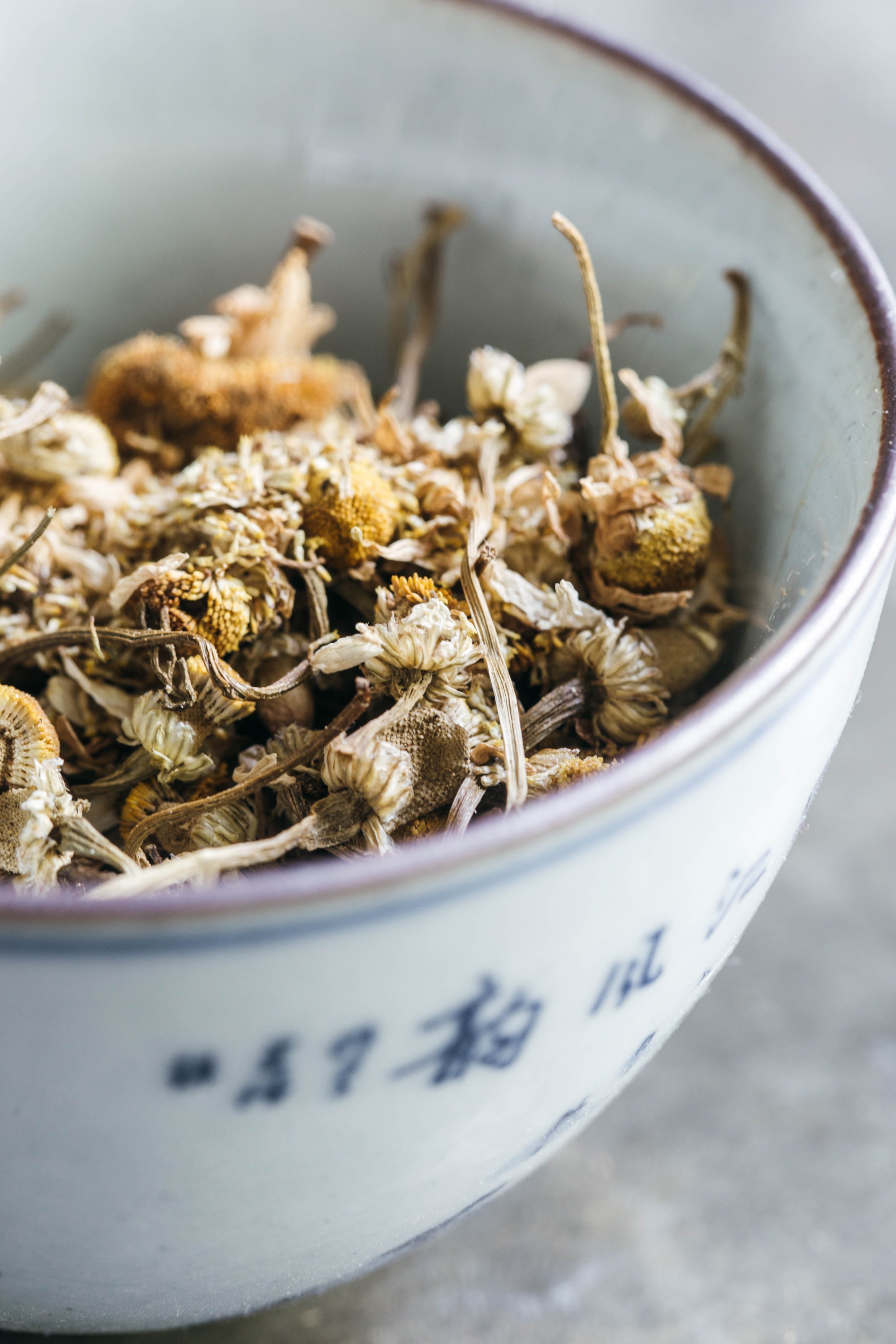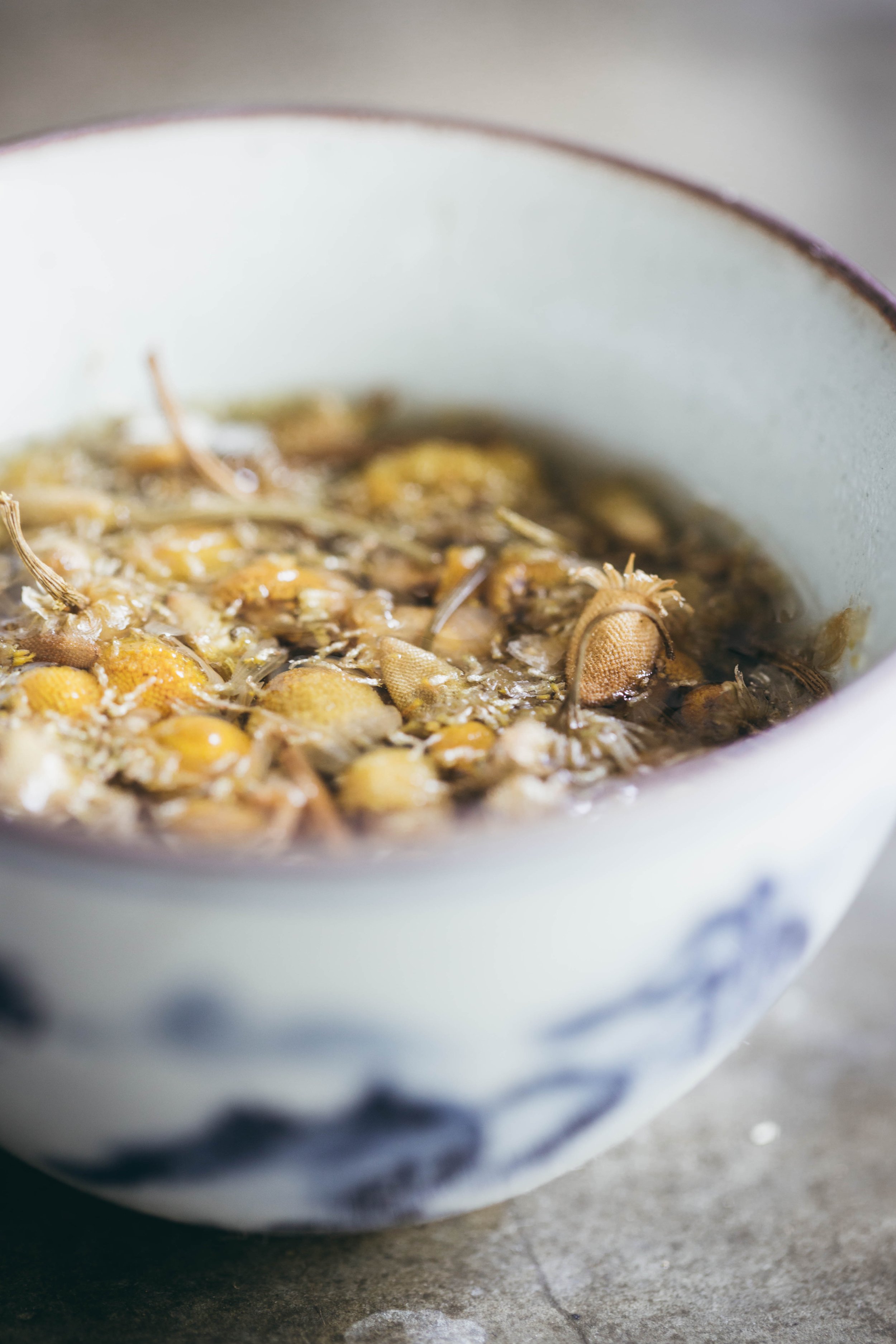Chamomile: A soothing brew for your mental health
Chamomile tea is a popular herbal tea that has been used for centuries for its calming and relaxing properties. It is made from the dried flowers of the chamomile plant, which contains a variety of beneficial compounds, including flavonoids and apigenin.
Chamomile tea has been shown to have a number of benefits for mental health, including:
Reducing stress and anxiety: Chamomile tea has a calming effect on the central nervous system, which can help to reduce stress and anxiety levels. This is due in part to the presence of apigenin, which binds to GABA receptors in the brain. GABA is a neurotransmitter that has inhibitory effects, meaning that it helps to slow down brain activity.
Improving sleep quality: Chamomile tea can also help to improve sleep quality. It has a mild sedative effect that can help people to fall asleep more easily and stay asleep longer. This is likely due to the combination of apigenin and other compounds in chamomile that promote relaxation.
Relieving symptoms of depression: Some studies have suggested that chamomile tea may also be helpful for relieving symptoms of depression. This is thought to be due to its anti-inflammatory and antioxidant properties.
When to drink chamomile tea
Chamomile tea can be enjoyed at any time of day, but it is often consumed before bed to promote sleep. It can also be sipped during the day to help reduce stress and anxiety.
Different uses and recipes
In addition to being consumed as a tea, chamomile can also be used in a variety of other ways. For example, it can be added to baths to promote relaxation or used in aromatherapy. Chamomile flowers can also be made into a compress to apply to the skin to relieve inflammation.
Here is a simple recipe for chamomile tea:
Ingredients:
1 cup of water
1 teaspoon of dried chamomile flowers
Instructions:
Heat the water until it is just simmering.
Add the chamomile flowers to the water and let steep for 5-10 minutes.
Strain the tea into a cup and enjoy.
Chamomile tea can be enjoyed plain or with a touch of honey or lemon. It can also be blended with other herbs, such as lavender or peppermint, to create a unique flavor profile.
This tea is a safe and effective way to improve your mental health and help you relax. It has been shown to reduce stress and anxiety, improve sleep quality, and relieve symptoms of depression.
If you want to know more about the science behind it:
Chamomile tea has been used for centuries to promote relaxation and improve sleep quality. However, in recent years, scientists have only begun to understand the mechanisms by which chamomile may benefit mental health.
One of the most important compounds in chamomile is apigenin. Apigenin is a flavonoid that has anti-inflammatory and antioxidant properties. It is also known to bind to GABA receptors in the brain. GABA is a neurotransmitter that has calming effects. When apigenin binds to GABA receptors, it can help to reduce anxiety and promote relaxation. ( I used to take GABA at night to be able to sleep)
Another important compound in chamomile is chamazulene. Chamazulene is a volatile oil that has anti-inflammatory and sedative properties. It is thought to work by binding to benzodiazepine receptors in the brain. Benzodiazepine receptors are the same receptors that are targeted by anti-anxiety medications such as Valium and Xanax.
Scientific studies on the mental health benefits of chamomile tea:
A 2016 study published in the journal Phytomedicine found that chamomile tea was effective in reducing anxiety symptoms in people with generalized anxiety disorder (GAD).
A 2017 study published in the journal Sleep Medicine found that chamomile tea improved sleep quality in people with insomnia.
A 2018 study published in the journal Complementary Therapies in Medicine found that chamomile tea was effective in reducing anxiety and depression symptoms in people with premenstrual syndrome (PMS).
Drinking chamomile is soothing and warming. I always have it in my medicine cabinet.
Let me know your thoughts!


